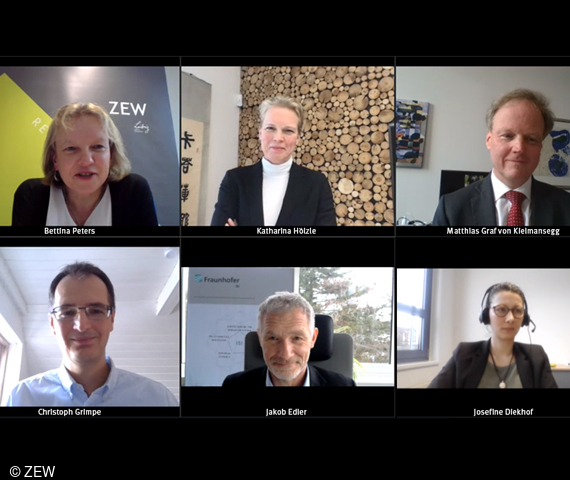The Impact of the Coronavirus Pandemic on the German Innovation System
WorkshopZEW/Stifterverband Workshop on Germany’s Capacity to Innovate in Times of Crises
The coronavirus pandemic has led to abrupt changes, forcing companies to adapt their established work processes and develop new solutions. Against this background, ZEW Mannheim and the Stifterverband jointly organised an online workshop on the impact of the current crisis on the German innovation system, which took place on 28 January 2021. This event, which was supported by the Federal Ministry of Education and Research (BMBF), provided an opportunity for around 200 representatives from businesses, research and policymaking to engage in intensive exchange.
In the first two panel sessions of the workshop, experts presented recent findings on the influence of the coronavirus pandemic on the German innovation system from the perspective of academia and business practice. In the first panel session, the participants gave an overview of the recent developments in the various sectors of the economy, highlighting similarities with former economic crises. The second panel session focused on the role of corporate culture for the success of companies in times of crises. In the third and last panel session, four renowned experts from the field of innovation policy presented their conclusions regarding the long-term impact caused by the pandemic and proposed policy options for economic decision-makers in order to stimulate Germany’s capacity to innovate and prepare for future crises. All panels were co-moderated by ZEW economist Dr. Josefine Diekhof.
Panel discussions
The workshop ‘Innovationsfähigkeit in Zeiten der Krise: Erfolgsfaktor Unternehmenskultur’ was organised as part of the project ‘Indicators for Innovation Systems’ funded by BMBF.

